
Kód: 04938944
Theodor W. Adorno
Autor Gerhard Schweppenhauser
Theodor W. Adorno (1903-1969) was one of the twentieth century's most important thinkers. Seeking to synthesize the essential insights of Western philosophy, Adorno revisited the ethical and sociological arguments of his predecess ... celý popis
- Jazyk:
 Angličtina
Angličtina - Väzba: Brožovaná
- Počet strán: 200
Nakladateľ: Duke University Press, 2009
- Viac informácií o knihe

Mohlo by sa vám tiež páčiť
-

Mercedes-Benz W124 series
58.98 € -17 % -
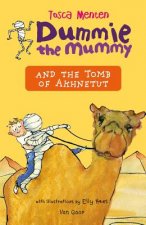
Dummie the Mummy and the Tomb of Akhnetut
16.17 € -1 % -

The World's Fittest Book
19.14 € -21 % -

Control of brucellosis and kinetics of immuno-allergic reactions
71.06 € -

Baseline of Russian Arctic Laws
255.91 € -

Wize Wize Beasts of the Wizarding Wizdoms
14.43 € -7 % -

Watercolor with Me in the Jungle
18.83 € -22 % -

Great Feat of Improvisation
43.21 € -13 % -

Mort
16.89 € -13 % -

Emotion Of Great Delight
8.39 € -24 % -

SEABIRDS
81.81 € -

We Are Bellingcat
10.23 € -24 % -

Marionettes
17.60 € -3 % -

Galapagos
40.44 € -2 % -

Book of Days
23.85 € -11 % -

Street Magik
16.17 € -2 % -

Conspiracy
15.15 € -

Trading and Exchanges
219.65 € -

Wills of the Archdeaconry of Sudbury, 1630-1635
38.19 € -

Oh She Glows Every Day
24.26 € -13 % -

Sky Wars; Military Aerospace Power
28.05 € -

Nigella Christmas
26.82 € -21 % -

Welsh Rivers
30.10 € -

Dad Jokes
7.98 € -22 % -

Birds of Costa Rica
25.18 € -19 % -
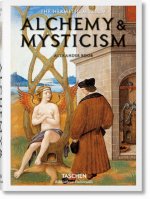
Alchemy & Mysticism
22.01 € -16 % -

Circumstances are Destiny
40.13 € -

Math at Their Own Pace
39.52 € -

Big Red Tractor & the Littlevillage
15.66 € -3 % -

Beeline Plus 4 Audio CD
25.39 € -

Reference Grammar of Modern Turkish
88.88 € -

100 Most Beautiful Songs Ever
42.49 € -

Zakładka indeksująca Donau 12x45 mm
1.53 € -16 % -

Jak řešit logické úlohy z matematiky
8.08 € -19 % -

Nevernight - Die Prüfung
15.04 € -2 %
Darčekový poukaz: Radosť zaručená
- Darujte poukaz v ľubovoľnej hodnote, a my sa postaráme o zvyšok.
- Poukaz sa vzťahuje na všetky produkty v našej ponuke.
- Elektronický poukaz si vytlačíte z e-mailu a môžete ho ihneď darovať.
- Platnosť poukazu je 12 mesiacov od dátumu vystavenia.
Viac informácií o knihe Theodor W. Adorno
Nákupom získate 89 bodov
 Anotácia knihy
Anotácia knihy
Theodor W. Adorno (1903-1969) was one of the twentieth century's most important thinkers. Seeking to synthesize the essential insights of Western philosophy, Adorno revisited the ethical and sociological arguments of his predecessors - Kant, Hegel, Marx, Nietzsche, and Walter Benjamin - in light of two pivotal twentieth-century developments: the rise of fascism, which culminated in the Holocaust, and the standardization of "popular" culture as a commodity indispensable to contemporary capitalism. This volume, first published in Germany in 1996, provides a succinct introduction to Adorno's challenging and far-reaching thought. Gerhard Schweppenhauser, a leading German scholar of the Frankfurt School of critical theory (whose members included Adorno, Benjamin, and Horkheimer), explains Adorno's epistemology, social and political philosophy, aesthetics, and theory of culture. After providing a brief overview of Adorno's life, Schweppenhauser turns to the theorist's core philosophical concepts, including post-Kantian critique, determined negation, and the primacy of the object, as well as his view of the Enlightenment as a code for world domination, his diagnosis of modern mass culture as a program of social control, and his understanding of modernist aesthetics as a challenge to conceive an alternative politics. Along the way, Schweppenhauser illuminates the works widely considered Adorno's most important achievements: Minima Moralia, Dialectic of Enlightenment (co-authored with Horkheimer), and Negative Dialectics. Adorno wrote much of the first two of these during his years in California (1938-49), where he lived near Arnold Schoenberg and Thomas Mann, whom he assisted with the musical aesthetics at the centre of Mann's novel Doctor Faustus. Expanding on the German edition, this volume includes additional information about Adorno's philosophy of music and more analysis of Benjamin's influence on his theory of art and mass culture.
 Parametre knihy
Parametre knihy
Zaradenie knihy Knihy po anglicky Humanities Philosophy History of Western philosophy
36.14 €
- Celý názov: Theodor W. Adorno
- Podnázov: An Introduction
- Autor: Gerhard Schweppenhauser
- Jazyk:
 Angličtina
Angličtina - Väzba: Brožovaná
- Počet strán: 200
- EAN: 9780822344711
- ID: 04938944
- Nakladateľ: Duke University Press
- Hmotnosť: 316 g
- Rozmery: 216 × 153 × 15 mm
- Dátum vydania: 06. April 2009
Obľúbené z iného súdka
-

Meditations
11.87 € -5 % -

The Myth of Sisyphus
8.08 € -

Why I Am so Clever
4.19 € -11 % -

Meditations
16.58 € -23 % -

Republic
11.97 € -17 % -

Beyond Good and Evil
11.15 € -23 % -

Gay Science
12.69 € -22 % -

Aphorisms on Love and Hate
3.57 € -24 % -
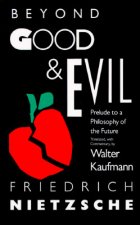
Beyond Good & Evil
12.89 € -21 % -

Meditations on First Philosophy
10.74 € -19 % -
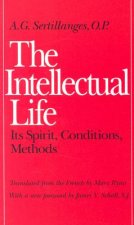
Intellectual Life
19.55 € -19 % -

Socrates' Defence
3.57 € -24 % -

Discourses, Fragments, Handbook
11.66 € -19 % -

Ride the Tiger
25.18 € -4 % -

Thus Spoke Zarathustra
9.82 € -24 % -

Fear and Trembling
11.15 € -23 % -
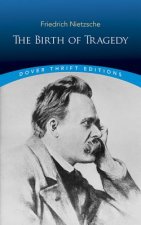
Birth of Tragedy
4.09 € -13 % -
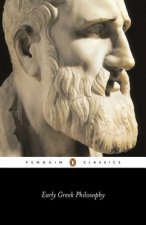
Early Greek Philosophy
14.43 € -23 % -
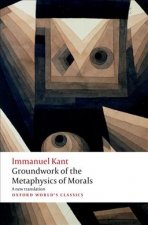
Groundwork for the Metaphysics of Morals
10.95 € -19 % -
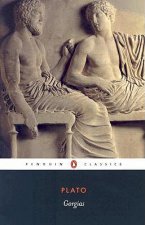
Gorgias
11.77 € -
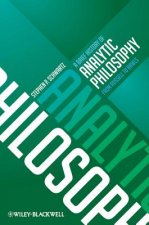
Brief History of Analytic Philosophy - From Russell to Rawls
38.70 € -2 % -
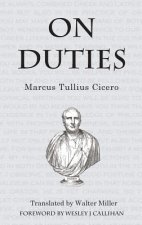
On Duties
13.71 € -4 % -

Discourses and Selected Writings
10.95 € -24 % -

Nicomachean Ethics
6.34 € -21 % -

Nausea
11.15 € -23 % -

Letters from a Stoic
12.38 € -15 % -

Meditations
20.06 € -21 % -

Simulacra and Simulation
19.14 € -17 % -

Phenomenology of Spirit
34.81 € -

Twilight of the Idols with The Antichrist and Ecce Homo
5.42 € -28 % -

On Liberty, Utilitarianism and Other Essays
10.13 € -23 % -
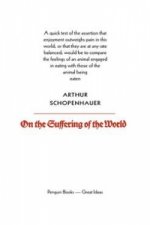
On the Suffering of the World
7.98 € -22 % -

Human Condition
21.60 € -9 % -

On the Shortness of Life
8.59 € -18 % -

Existentialism Is a Humanism
9.21 € -18 % -

Think
12.28 € -15 % -

Guide to the Good Life
18.94 € -2 % -
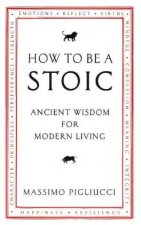
How To Be A Stoic
15.76 € -22 % -

The Symposium
9.31 € -17 % -

Human, All Too Human & Beyond Good and Evil
5.93 € -21 % -

At The Existentialist Cafe
12.79 € -24 % -

Undiscovered Self
28.66 € -
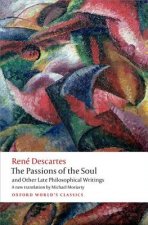
Passions of the Soul and Other Late Philosophical Writings
12.28 € -23 % -

The Trouble With Being Born
13.20 € -18 % -

Leviathan
5.21 € -30 % -
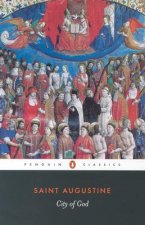
City of God
18.94 € -2 % -

Ecce Homo
10.13 € -23 % -
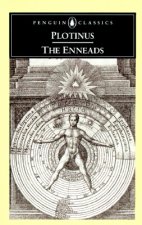
Enneads
16.38 € -19 % -
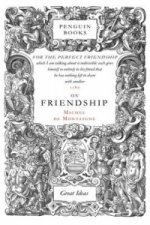
On Friendship
7.98 € -22 %
Osobný odber Bratislava a 2642 dalších
Copyright ©2008-24 najlacnejsie-knihy.sk Všetky práva vyhradenéSúkromieCookies



 21 miliónov titulov
21 miliónov titulov Vrátenie do mesiaca
Vrátenie do mesiaca 02/210 210 99 (8-15.30h)
02/210 210 99 (8-15.30h)